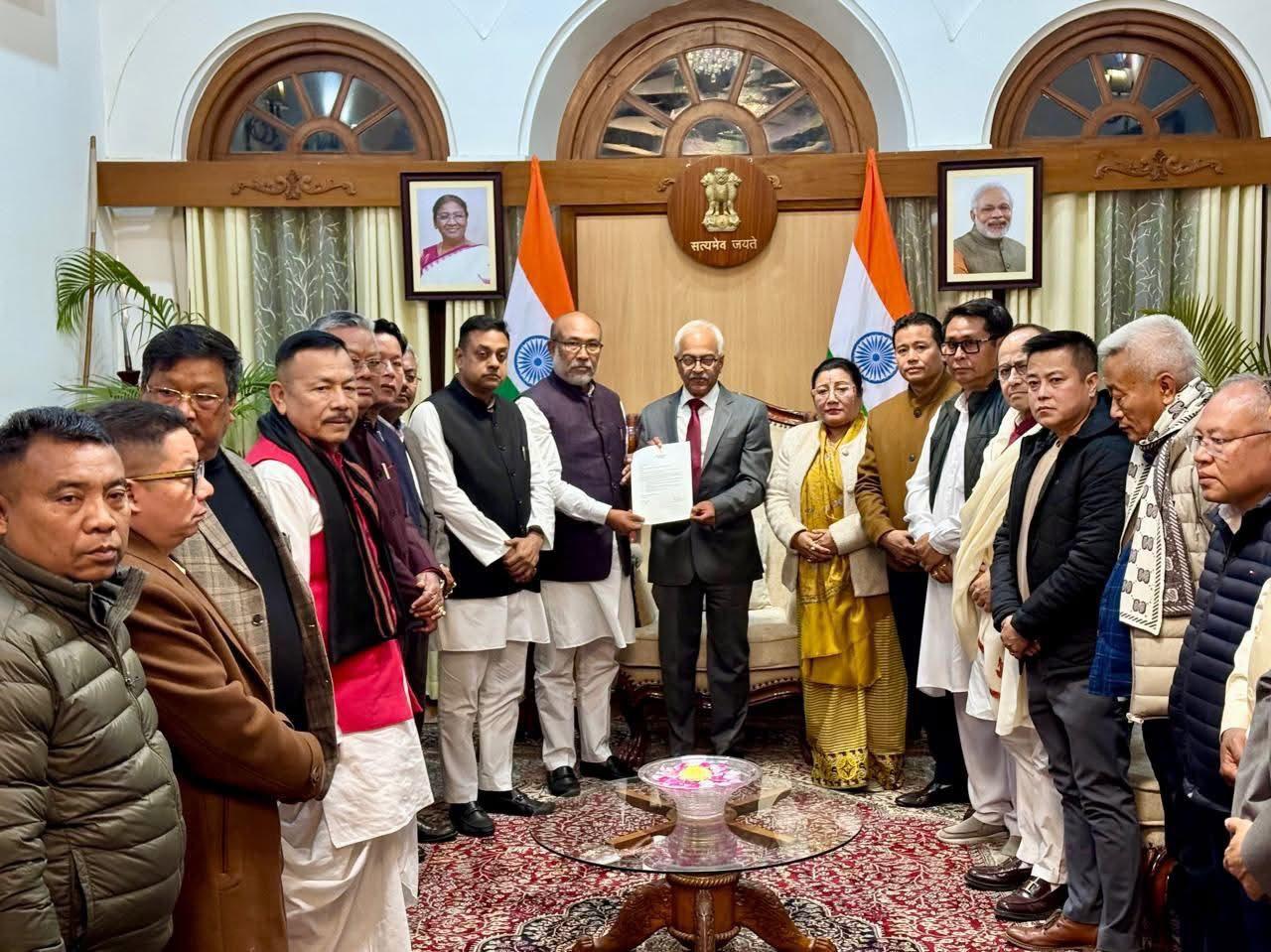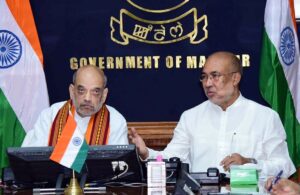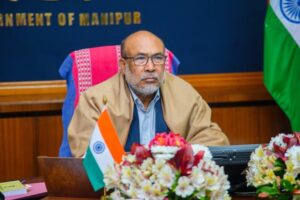In their eagerness to assert influence, the dissident MLAs found themselves politically outmanoeuvred. Their failure to rally behind a successor only reinforced Singh’s indispensability. In contrast, Singh emerged from the episode with enhanced political capital—his resignation became a moment of defiance rather than defeat. By setting the terms for Manipur’s future, he has ensured that his legacy will continue to shape the state’s political discourse
 KRC TIMES Manipur Bureau
KRC TIMES Manipur Bureau

Waari Singbul Network
When Manipur Chief Minister N Biren Singh was finally ‘allowed’ to resign on February 9, 2025, it was neither a moment of political surrender nor an unexpected development. It was the culmination of the Centre’s prolonged and deliberate oversight of the state’s worsening crisis. Since the outbreak of ethnic violence on May 3, 2023, which left over 250 dead and displaced more than 60,000 people, Manipur has been a theatre of bloodshed, destruction, and deep communal fractures between the Meitei and Kuki-Zo communities.
Yet, Singh’s departure was anything but a closure—it instead reinforced his political standing. Unlike most resignations, his was carefully choreographed; he did not merely step down but dictated the terms of his exit, ensuring that his vision for Manipur remained central to its governance.
The political drama that followed exposed the disarray within the BJP’s Manipur unit. The dissident legislators, who pressured Singh to step down by threatening to support a no-confidence motion in the Assembly’s budget session, failed to offer a viable alternative leader. Their failure was evident when the new Governor, former Union Home Secretary Ajay Kumar Bhalla, recommended placing the Assembly under suspended animation. Rather than achieving their objective of replacing Singh, the rebels unwittingly reinforced his political weight—Manipur’s governance was left in limbo, and the BJP’s inability to manage internal dissent stood exposed.

Singh’s resignation was unprecedented in Indian politics. He did not merely step down—he laid out conditions for his exit, asserting that any future leadership must uphold Manipur’s territorial integrity, intensify action against illegal immigration, sustain the war on drugs, and curb narco-terrorism. These conditions were not just a political statement; they were demands directed at both the Centre and its rivals within the BJP. His resignation letter was, in effect, a roadmap for Manipur’s continued governance, making it clear that any deviation from these principles would be met with public scrutiny.
Governor Bhalla, a seasoned bureaucrat with a track record of managing crises—including in Kashmir post-Article 370 abrogation and during the COVID-19 lockdown—acted swiftly after BJP legislators failed to rally around a leader and stake a claim to form the government. Recommending the promulgation of the President’s Rule, he wasted no time asserting control. By relocating to the Manipur Secretariat to oversee governance firsthand and issuing an appeal for the surrender of looted arms, Bhalla signalled that restoring order was his top priority. His decision to suspend the Assembly underscored the Centre’s recognition that the state’s political leadership was in disarray and incapable of resolving the crisis alone. The anticipated crackdown on arms retrieval, likely through extensive combing operations, further indicates that security consolidation is Bhalla’s immediate mission.

The BJP’s central leadership may have underestimated the consequences of removing Singh. In their eagerness to assert influence, the dissident MLAs found themselves politically outmanoeuvred. Their failure to rally behind a successor only reinforced Singh’s indispensability. In contrast, Singh emerged from the episode with enhanced political capital—his resignation became a moment of defiance rather than defeat. By setting the terms for Manipur’s future, he has ensured that his legacy will continue to shape the state’s political discourse.
Singh’s tenure as Chief Minister saw him champion several policies that no other leader propagated, which redefined Manipur’s engagement with national security and border politics. He was instrumental in pushing the Centre to fence the 398-km porous Indo-Myanmar border, regulate the Free Movement Regime (FMR) through biometric tracking of foreign nationals, and enforce deportation policies for overstayers. His ‘War on Drugs’ campaign took direct aim at poppy cultivation and narco-financed insurgency, placing him at the centre of Manipur’s fight against organized crime and cross-border infiltration.
Many political analysts believe Singh’s resignation was a calculated sacrifice to shield the BJP from blame for its mishandling of the Manipur crisis. Yet, paradoxically, the move only elevated his standing. His dissident rivals’ lack of leadership acumen played directly into his hands, allowing him to step away from the immediate turmoil while ensuring his ideological and policy legacy remains central to Manipur’s governance.





